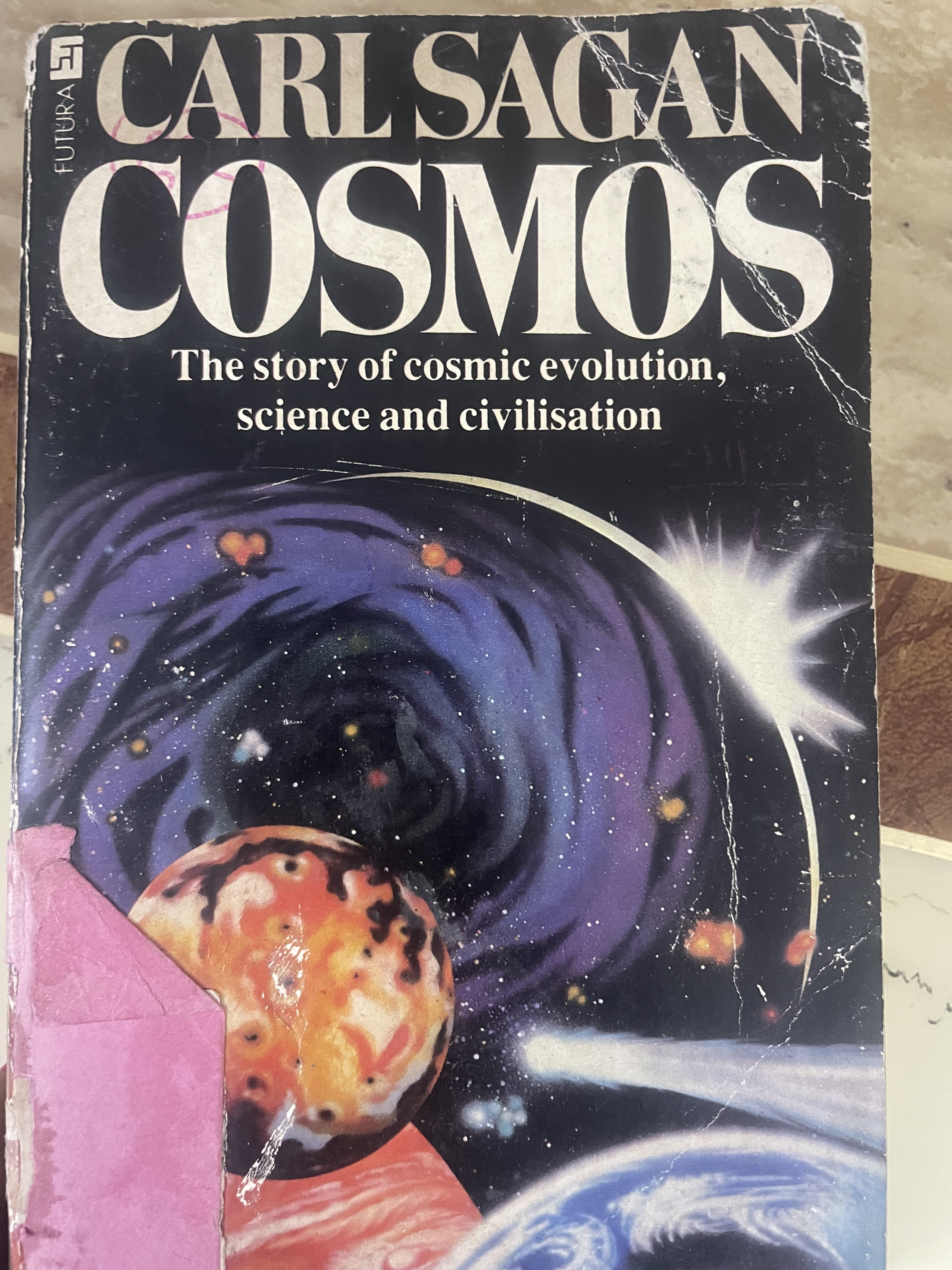Cosmos

About
Summary
Exquisite
TOC
Details
Related
URL
Images
Overview
Cosmos, authored by Carl Sagan and first published in 1980, is a landmark work that explores the universe and humanity's place within it. The book serves as both a scientific treatise and a philosophical reflection on the nature of existence, weaving together elements of astronomy, biology, history, and philosophy. Sagan aims to make complex scientific concepts accessible to the general public, encouraging readers to appreciate the wonders of the universe and our interconnectedness with it.
Importance of Book
Popularizing Science: Sagan's engaging writing style made complex scientific ideas accessible to a broad audience, inspiring interest in science among non-specialists.
Cultural Impact: The book has influenced public perceptions of science and space exploration, contributing to a cultural appreciation for scientific inquiry.
Educational Resource: Cosmos is widely used in educational settings to introduce students to fundamental concepts in astronomy, biology, and environmental science.
Key Themes
The Universe and Its Origins: Sagan discusses the Big Bang theory and the formation of galaxies, stars, and planets. He emphasizes the vastness of the cosmos and our relatively minute existence within it.
Life on Earth: The book examines the evolution of life, exploring how natural selection has shaped species over millions of years. Sagan highlights humanity's unique capacity for consciousness and inquiry.
Search for Extraterrestrial Life: A significant portion of "Cosmos" is dedicated to speculating about the existence of life beyond Earth. Sagan discusses the potential for intelligent life in the universe and humanity's efforts to communicate with it.
Science as a Methodology: Sagan advocates for scientific inquiry as a means to understand reality. He emphasizes skepticism, critical thinking, and the importance of evidence in forming beliefs.
Environmental Concerns: The latter chapters address pressing issues such as nuclear weapons and climate change, warning about humanity's impact on Earth and urging for responsible stewardship of our planet.
Cultural Significance
Interdisciplinary Approach: Cosmos exemplifies an interdisciplinary approach to understanding the universe, blending science with philosophy and history. This holistic perspective encourages readers to think critically about their place in the cosmos.
Inspiration for Future Generations: The book has inspired countless individuals to pursue careers in science, technology, engineering, and mathematics (STEM), fostering a generation of scientists and thinkers.
Legacy of Exploration: Sagan's emphasis on exploration resonates with humanity's innate curiosity and desire to understand the unknown, reinforcing the importance of continued investment in space exploration.
Effects on Society
Scientific Literacy: Cosmos has contributed to increased scientific literacy among the general public, promoting an understanding of fundamental scientific principles that are crucial in today's technology-driven society.
Environmental Awareness: By addressing environmental issues, Sagan's work has raised awareness about humanity's responsibilities toward Earth, encouraging discussions about sustainability and conservation.
Civic Engagement: The book encourages readers to engage with scientific issues critically, fostering a culture of inquiry that can influence public policy and societal norms.
Conclusion
Cosmos by Carl Sagan is more than just a book about astronomy; it is a profound exploration of existence that invites readers to consider their place in the universe. Its engaging narrative style and interdisciplinary approach have made it a seminal work in popular science literature. Through its exploration of key themes such as the origins of the universe, evolution, extraterrestrial life, and environmental concerns, "Cosmos" continues to inspire curiosity and wonder about the cosmos. Its cultural significance is reflected in its lasting impact on scientific literacy, environmental awareness, and public engagement with science. As we navigate contemporary challenges, Sagan's insights remain relevant, reminding us of our shared responsibility to explore and protect our planet within the vast expanse of the universe.
Title
Cosmos
Author
Carl Sagan
Name of Publisher
Futura McDonald & Co
Publish Date
1981
Subject
It is a landmark work that explores the universe and our place within it. The book serves as both an introduction to science and a meditation on humanity\\\'s relationship with the cosmos.
Vintage
1948-2000
Category
Science
Sub Category
NA
Rarity
Normal
